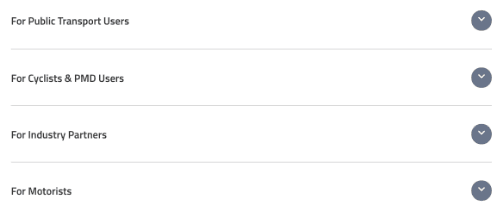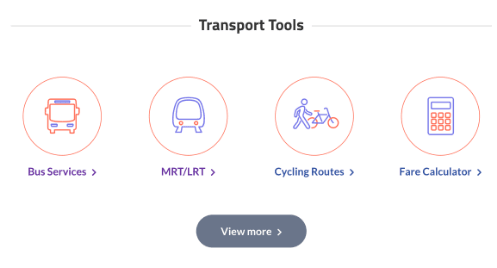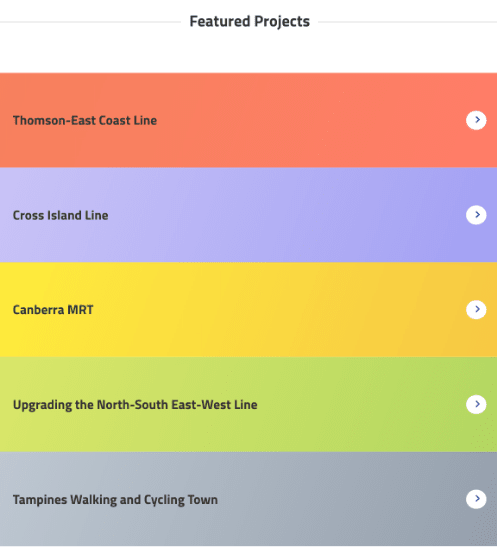The Land Transport Authority (LTA) has awarded the contract for the Bukit Merah bus package to SBS Transit Ltd (SBST), at an estimated total fee of $472 million[1] over the five-year contract period. The package is currently operated by SBST and this new contract will start from the fourth quarter of 2018.
2 The Bukit Merah package consists of 18 bus services[2], including two cross-border services. These services will operate out of the new Ulu Pandan Depot, which will be handed over to SBST in March 2018. Under the package, SBST will continue to manage the two bus interchanges, i.e. Bukit Merah and HarbourFront Bus Interchanges, as well as four bus terminals, namely Kampong Bahru, Marina Centre, Queen Street and Shenton Way Bus Terminals[3].
Evaluation Process
3 The tender for the Bukit Merah bus package was called on 28 April 2017 and attracted six bids when it closed on 28 August 2017. All tender submissions were evaluated based on the same set of criteria through a two-envelope process which looked at both quality and price factors. With greater weightage given to the quality proposals, the price envelopes were only opened after the quality evaluation was completed. This two-envelope process ensures that LTA gets the best-value-for-money proposal without compromising on quality.
4 SBST was awarded the contract because its proposal demonstrated a comprehensive understanding of the operational considerations, and strong competence in bus service scheduling that would enable the optimal deployment of buses and resources. The proposal showcased SBST’s extensive experience in bus operations, while offering good value for money[4]. Furthermore, SBST prepared comprehensive contingency plans for cross-border services, and committed a significant number of experienced technicians to ensure high maintenance and reliability standards. SBST also demonstrated innovative IT solutions for infrastructure and asset maintenance, as well as security management, with the development of several in-house mobile applications for staff to report defects and incidents. In terms of manpower development, SBST presented a career development program to up-skill its staff, with more opportunities for career progression.
Scope of Contract
5 SBST will continue to operate 18 two-way bus services from Bukit Merah and HarbourFront Bus Interchanges, as well as Kampong Bahru, Marina Centre, Queen Street and Shenton Way Bus Terminals.
6 In addition to operating and managing bus services to specified performance standards, SBST’s responsibilities include the following:
a) Operate, manage and maintain the buses and their on-board equipment provided by LTA;
b) Operate, manage, and maintain Bukit Merah and HarbourFront Bus Interchanges, Kampong Bahru, Marina Centre, Queen Street and Shenton Way Bus Terminals, as well as the new Ulu Pandan Bus Depot, including all equipment and systems provided therein;
c) Charge and collect fares as approved by the Public Transport Council, on behalf of the Government, for travel on the bus services;
d) Provide bus service information at all bus stops and bus interchanges served by the bus services; and
e) Provide customer management services, such as lost and found service, and a hotline for commuter feedback and enquiries.
7 If SBST performs well, LTA can extend the contract term by two years at the end of the contract.
Annex A: Bid Prices for Bukit Merah Bus Package
Annex B: Details of Bukit Merah Bus Package
[1] Excluding adjustment for inflation, changes in wage levels and fuel costs, service variation, and incentive payment during the contract period.
[2] The bus services are 5, 16, 57, 93, 120, 121, 122, 123, 131, 145, 160, 170, 195, 198, 272, 273, 400 and 402.
[3] The new Kampong Bahru Bus Terminal will replace the existing New Bridge Road Bus Terminal from 10 March 2018, while the new Shenton Way Bus Terminal had replaced the old bus terminal since 25 June 2017.
[4] SBST submitted a base and an alternative proposals for this package. While both proposals are of the same quality, the alternative proposal offers savings by leveraging on its existing bus infrastructure to optimise bus operations.
















